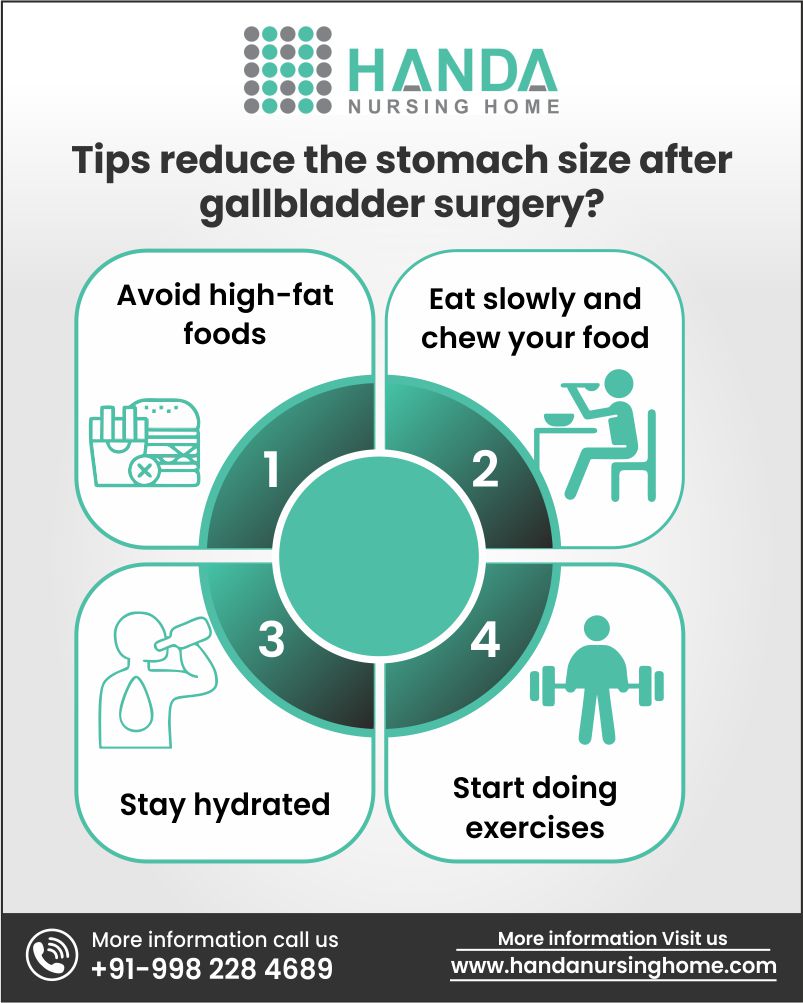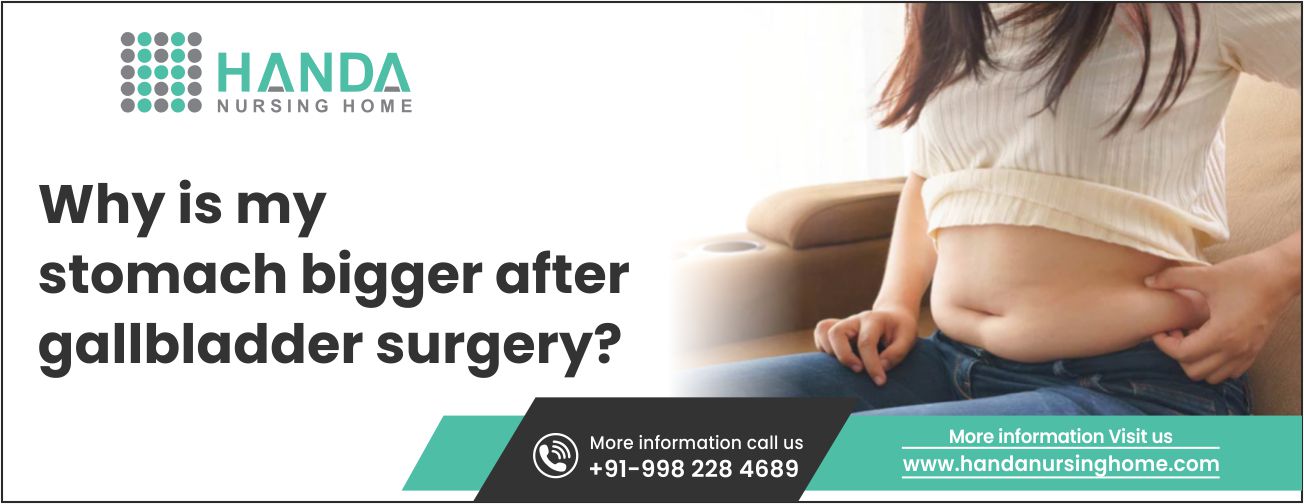Having gallbladder surgery can be scary, and it is natural to be concerned about the effects of surgery on your body. Gallbladder removal surgery, also known as laparoscopic gallbladder surgery, is one of the safety procedures. Like other surgeries, it also involves a few complications as patients feel bloated. It is one of the unpleasant side effects of the body’s water retention when the gallbladder isn’t working properly. Post-surgery, it can be challenging to digest some fats, and over-the-counter medicines relieve it. However, eating a healthy diet with plenty of fiber and avoiding fatty and fried foods can help you to relieve bloating and gas,
Reasons why the stomach gets bigger after gallbladder surgery?
Gallbladder surgery is done when your surgeon suspects issues like gallstones and inflammation. Post-surgery of gallbladder removal, it is common for patients to experience that their stomach looks bigger. Some mild bloating, as well as swelling after gallbladder surgery, are normal and is expected. There are many reasons why many patients experience bigger stomachs after surgery. Some reasons are discussed below to help you understand it clearly :
- The procedure involves the need for surgical gas to fill the stomach cavity. This is done to make it large enough to perform the procedure. However, every attempt is made to remove this gas from the body post-surgery, but some air remains left inside. This is the reason why patients experience uncomfortable bloating post-surgery. It is normal to have some swelling occur after the surgery, although it is an unpreventable effect but is temporary and completely manageable with the following recommendations.
- Another reason to have a big stomach after surgery is that the gallbladder is located in the upper side of your abdomen, and it stores bile, a digestive fluid that helps break down the fat in food to eat. The stored bile is no longer available when the gallbladder has been removed. Because of this, the body needs to find another way to break down the fat, which leads to increased stomach size.
- Another reason for the blogger’s stomach is the removal of the organ itself. The gallbladder is also linked with other organs, and when it is removed, the space it occupies can accuse the other organs of shifting and expanding, leading to a bigger stomach size.
Gallbladder surgery can also cause changes in the diet of patients. Post-surgery, you are advised to avoid high-fat foods as they are difficult to digest. This may lead to an increase in your stomach size as your body adjusts to the new diet.

How to reduce the stomach size after gallbladder surgery?
There are a few things that you can do to reduce the stomach size post laparoscopic gallbladder surgery. You should avoid eating large meals and choose to consume frequent meals.
- Avoid high-fat foods as they may be difficult to digest, and many cause bloating and discomfort.
- Try to eat slowly and chew your food thoroughly as it will help your stomach to digest it well and also help to reduce bloating.
- It is best to stay hydrated by drinking plenty of fluids on regular basis. It will help prevent constipation and keep your digestive system moving smoothly.
- You can also start doing exercises that can help to stimulate the digestive system. Before setting your exercise, consult with your surgeon to know when you can start with it.
If you are worried about the size of your stomach after laparoscopic gallbladder surgery, it is better to talk to your d surgeon about it. They can help you determine if there is a problem or if you need any suggestions to tackle the situation. An increase in stomach size after the surgery is normal. There are a few things that you can do to minimize the changes, like eating smaller meals more often, avoiding high-fat foods, and exercising regularly. You should discuss with the best gallbladder surgeon in Delhi to tackle the problem before you go for the surgery.
Read More
- Foods To Eat And Avoid During The Recovery Period After Gallbladder Surgery
- Gallbladder Disease And Its Symptoms: Understanding When Surgery Is Necessary
- How Much Does Laparoscopic Surgery Cost In Delhi?
- Can Gallbladder Removal Surgery Cause Digestive Problems?
- Gallbladder Stones – Causes, Treatment & Surgery
- How Much Does It Cost For Laparoscopic Gall Bladder Removal?
- Laparoscopic Gallbladder Surgery in Delhi

